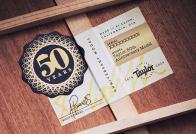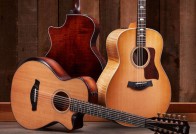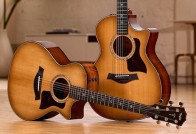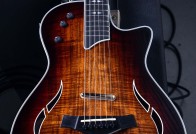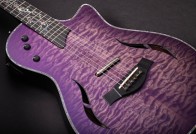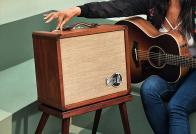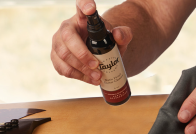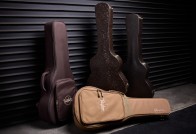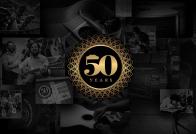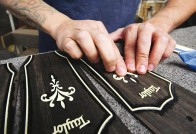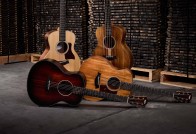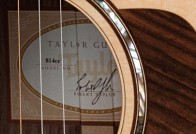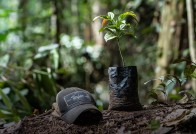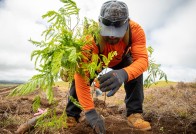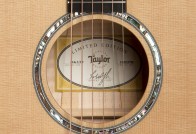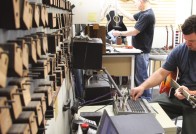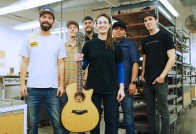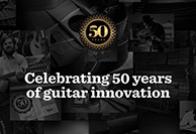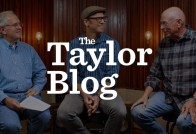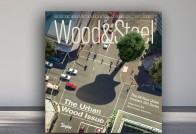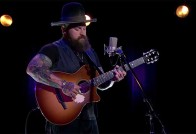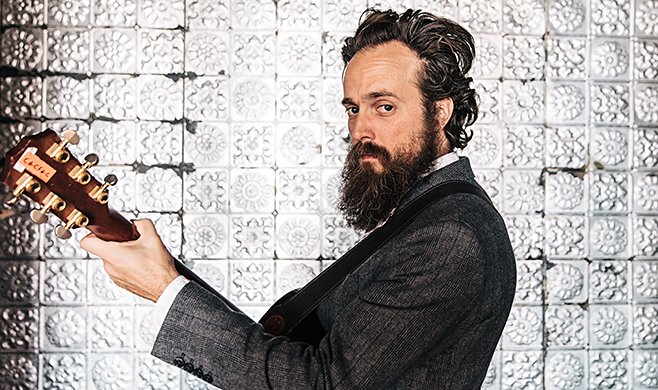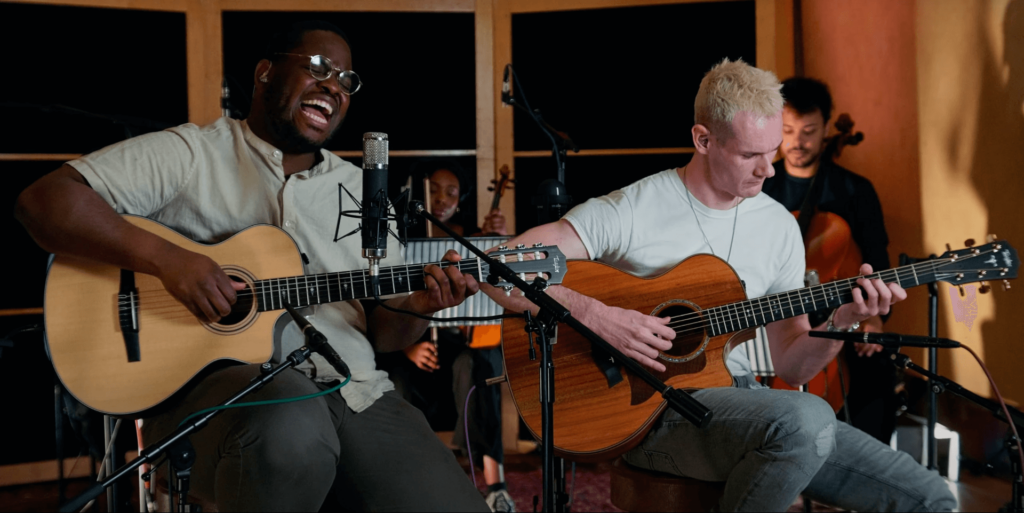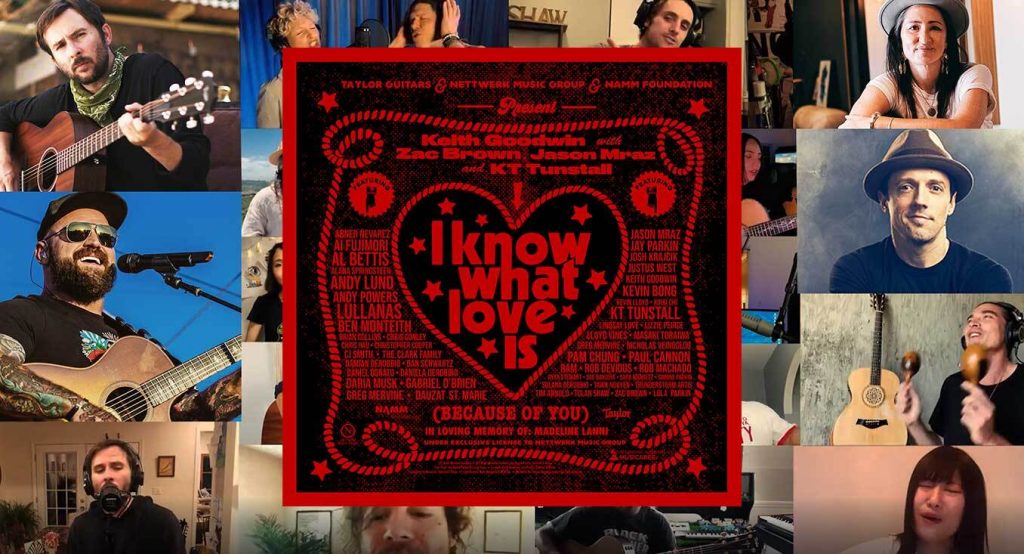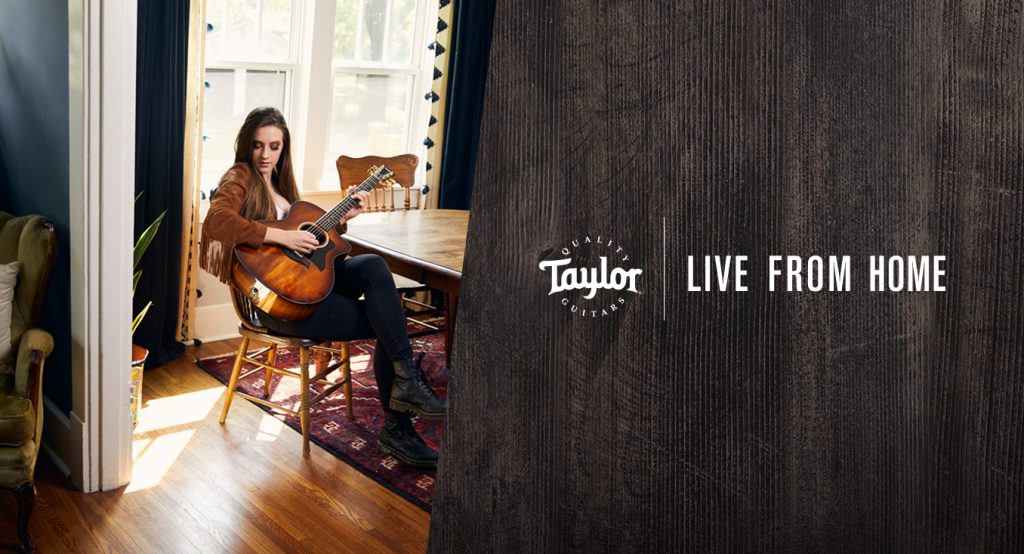Sam Beam of Iron & Wine reflects on the creative approach that shaped his latest opus, Beast Epic. A longer version of this interview is included in the Fall 2017 issue of Wood&Steel.
Sam Beam has been busy. Among other things, the lavishly bearded singer-songwriter—better known by his musical stage name Iron & Wine—and his wife have been raising their five children in South Carolina, where Beam grew up. Between that, releasing covers, and collaborating with other artists—including last year’s Love Letter for Fire, a collection of duets recorded with singer-songwriter Jesca Hoop—Beam has also found time to write, record and self-produce Iron & Wine’s sixth album, Beast Epic, his first collection of new material in four years.
For those who don’t know his work, Beam has carved out a successful career as something of a modern folk pioneer, amassing a devoted following along the way. He famously began as a solitary do-it-yourselfer who wrote and recorded his music in his home studio, so he’s no stranger to navigating the complexities of the creative process on his own. Beam is a talented multi-instrumentalist, but his heart often gravitates toward acoustic guitars. His best work leans heavily on them, and it’s clear from even a cursory listen that he knows his way around the instrument. Flavored with carefully plucked guitar lines, rich acoustic textures, and intimate vocals, Iron & Wine’s music has drawn comparisons to the acoustic work of Neil Young, Nick Drake, and Simon & Garfunkel. A Taylor player for years now, his acoustic arsenal features several Grand Auditorium models, including a 714ce he’s owned since 2003.
I caught up with Beam prior to the August release of his record. He talked about his evolving creative approach at this stage of his life, the importance of preserving the “human qualities” in his music, his love of nylon-string guitars, and how the sense that his career is a fluke has liberated him artistically.
Do you mainly write on acoustic guitar?
Yeah, it’s usually an acoustic guitar or piano, and I have a nylon-string I sometimes bang around on. It’s always sitting out close to my hands.
What’s your creative process like when it comes to writing?
I used to be a lot more disciplined about it and made it feel like a job. I would take the kids to school and then come home and work until three or four in the afternoon. Now I’ve become a lot less disciplined [laughs]. I think it’s because when my kids were younger they needed a lot more hand-holding, but now I have a bit more free time and I guess I’m a little more relaxed. I feel like I’m writing just as much [now as I was then]; it’s just not as structured. It’ll go in waves—some times will be more productive than others. I used to just sort of trudge through the unproductive times and try to make something work, whereas now I’ll wait and use that time for something else.
A lot of Beast Epic was recorded live without overdubbing. Was that a conscious decision?
Yeah, it’s a way of working that I’ve been pursuing for a little while. The first couple of records were just me, and I did a lot of overdubbing. Then as I got into it and kept making records, some of them were created in ProTools. It was all overdubs, but that was the type of music I was interested in making at the time, in the sense of using the studio as an instrument on the record. It was really interesting and I learned a lot, but it wasn’t as satisfying as just playing with other people. It was more about the process of making the record than it was performing and making something together. That has a lot of benefits, but at the same time, I missed the sound that you get [from playing live]. Some of my favorite records have strange microphone bleed and sonic spaces that are unique to the recording sessions. I just love the spontaneity of it. Also, earlier on, I feel like I was trying to polish some of the humanity out. I wanted it to sound right. Now, I’m not sure if “right” means “perfect.” I like the more human qualities and letting all of the imperfections remain.
You’ve said that Beast Epic is a “transitional record” for you. That feels very relatable in the sense that it’s a sentiment that seems to resonate with a lot of people right now.
It depends on what you are talking about. If you’re talking about social or political problems, then yeah, in the sense that people are in transition and they don’t know what to expect. I think that makes you look inward. I do think that this record—although not really about those issues—resonates with people who are on that kind of an inward journey. It’s an introspective record. That said, I also feel a lot of friends my age are in a strange transition, and it’s a different one than when we were 20 or 30, but at the same time it’s just as powerful and disturbing and rewarding.
I know you have a bunch of Taylor guitars. How do you decide which one to use?
It just kind of depends. I’m not really terribly precious about guitars. Basically, I pick one up and try to adjust what I’m doing based on the sound that I’m getting. Over the years I’ve definitely found ones that tend to fit the type of music that I play more than others. At the same time, I’ve never written it down, so I’m always remembering as I go. I’ve collected a bunch of guitars over the years that I use as different colors on a palette in order to make new things, but I end up using a lot of the same colors just because I like them. I love the Taylors, the Expression System and the way it works with the PA—I haven’t had anything else that works like that and sounds as good in a live setting.
Taylor is also making you a 714ce. Are you planning to customize it at all?
I love the sexy looking ones [laughs]. I’ve got a couple different ones from Taylor. I’ve been doing a lot of detuning and alternate tuning; I have a little army of guitars onstage so I don’t have to keep retuning between songs. I have a couple that are steel-stringed, and I had a couple of the nylon-string ones made. Like we were talking about before, I’m always composing with the nylon-string guitar; one of my earliest guitars was a nylon-string. It just seems so essential to the sound that I make and hear when I’m making music at home, but for some reason I never used it onstage. I’ve never found one that I liked the sound of onstage, so I’m hoping one of these days Taylor is gonna help me out. [Ed. Note: We’ve since sent him a pair of 714ce-N guitars featuring a Western Sunburst top.]
Do you ever practice in the sense that you work on fingerpicking or scales, or do you mainly just write these days?
You know, it depends on the day. Some days if I’m working on a song I’ll just focus on lyrics, but usually I’m playing just because I like the sound of it. I never took lessons, so it’s always been a process of discovery for me, and that’s the most interesting thing about it. I always feel like I’m in uncharted territory because I just play by ear. I definitely do a lot of strange tunings, and lately I’ve been trying to learn how to play left-handed just to switch things up and hear things differently because that’s how you stay engaged. It’s about what I haven’t discovered rather than refining something to a perfect place.
You can find Beast Epic in stores and on streaming platforms now. Have a listen.
Jonah Bayer is a freelance journalist based in Brooklyn, New York. You can read his work in Playboy, VICE, The AV Club, Inked, Revolver and Guitar World. He is also the host of the Going Off Track podcast and co-creator of the Web series “Sound Advice.”



